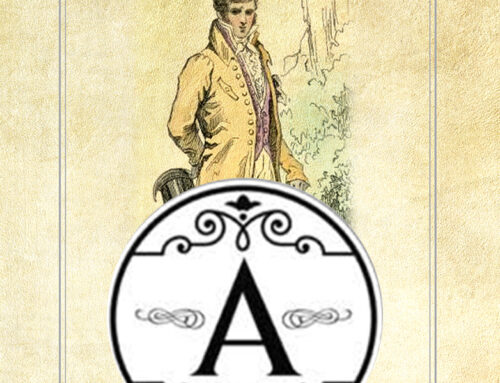
The New York rabbi giving Bridgerton a Yiddish twist
She’s a rabbi by day and Regency romance novelist by night. It’s a double act not many people could pull off, but not many people are Rabbi Jo David – pen name Nola Saint James – who has a penchant for Bridgerton-style love stories.
Anarchy at Almacks, her debut novel, is the first published work in a series titled The Edanmore Chronicles and, like the best Regency-era romances, is a story of love at first sight.
Set in 1804 and following the courtship of “dashing Admiralty spy Lord Maximillian Browning and breathtaking, red-haired Miss Rowan Higbee”, the publication of the book has been a long time coming for Rabbi David, who admits to having found extra inspiration in Bridgerton, Netflix’s hit historical romance series.
The New York-based rabbi has been working as a minister since 1992 and is a lifelong lover of fiction – but her specific interest in Regency romances was born during a dark period in her life.
“The truth is that most people start reading romance because of something in their life that is out of alignment and they’re looking for an escape,” says the rabbi, who says her nom de plume could as easily have been used for a character in her books. She began reading romances in 2003 while recovering from post traumatic stress disorder following the September 11 attacks. Rabbi David lives in Manhattan and remembers the day the towers fell, an event that had a profound and lasting impact on her mental wellbeing.
“One day I was a rabbi, I was travelling all around the world, and the next day, the day after 9/11, I was sitting on the couch and basically couldn’t move,” she says.
“And when I finally began to be able to get out of the house, I would go to my therapist and cry for hours.”

The only thing Rabbi David could do was sit in a book shop near her therapist’s office, seeking comfort from books.
“I thought, well, in a romance, maybe something good happens. And I started reading, and I haven’t stopped reading romances since.”
But it was the period romances that provided the greatest distraction.
She says: “When you read contemporary romance, you’re dealing with all the things that you know are in the world, that you’re already dealing with. When you read historical fiction, you don’t have to worry about the world that you’re living in, and it gives you an escape.”
The English Regency era spanned the years from 1795 to 1837, covering the last years of George III’s reign and including the official Regency period from 1811 to 1820 when his son governed the country as Prince Regent after the mentally ill king was declared unfit to rule.
Fascination in this period, often defined culturally by the works of Jane Austen, is undergoing a revival, not least thanks to the massively successful Bridgerton series.
Rabbi David is gripped by the music, art and culture of the period. “It’s a real treasure trove for a writer,” she says.
When she started writing, she was working on and off but hadn’t any plans for a novel. Then in 2018, when she was in her late sixties, she experienced something of an epiphany. “I thought, ‘If I don’t do it now, when am I going to do this?’” she says.
She found herself drawing from her experience as a rabbi to make her dream of literary success become a reality. “It’s really, what does the story require? It’s just like, as a rabbi, when you do a sermon, especially a High Holy Day sermon.
“What you’re thinking about is, ‘What does the congregation need to hear? And how can I deliver it?’ In writing romance novels, it’s the same.
“I’m always thinking, ‘What do I want to say?’ Because each of my books, and I’ve written five now – this is the first one to be published, but there are more in the pipeline – has a point of view about what I think the world should be like.”
Anarchy at Almacks is also a story imbued with Jewish values, however subtly. “Jewish themes are very important in my stories, even though they may not be labelled as Jewish.
“For example, Anarchy deals with the concept of the beshert, the one that that you’re intended to marry,” she says.
Her website is a haven for the Regency-curious, with resources on the era’s history, fashion and food. It is, for Rabbi David, a passion project. “Having taken the plunge [on pursuing a career as an author], I can honestly say that I am living my best life right now. I am, without a doubt, my most authentic self.”



